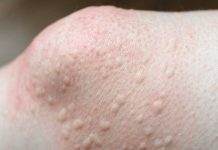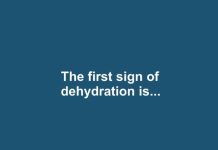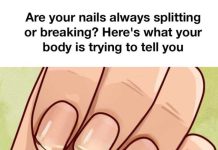Nurses are the too-often unsung heroes of the medical community, and we rely on their wisdom to keep us healthy and safe. Did you know that their years of experience handling everything from IV lines to bedpans have given them knowledge in tons of other areas as well? Little Things has gathered some of their most varied and useful tips to share with us. Whether you’re dealing with an unpleasant odor, a nasty cut, anxiety, or crazy hair, there’s always a great nurse to get you out of trouble. Read on to discover EIGHT of them!
- Smear toothpaste on your finger— and below your nose.

- OK, so the toothpaste-on-the-finger tricks? It’s to help your breathing! The menthol in the toothpaste blocks odors and stenches that are not only unpleasant, but can make it hard to breathe. Smear some on your hands to sniff when you need, use it more directly by smearing it below your nose, or double-up on face masks and put a layer of ointment between them. Toothpaste, Vicks VapoRub, and/or anything mentholated will work well!
- Fold towels.

- This one isn’t (just) about cleaning up after patients; it’s about calming down! We all get anxious and worried sometimes, and simple folding – think towels, washcloths, and other things hard to mess up – is calming because the action distracts us and makes us feel useful without requiring intense concentration.
- Superglue your cuts.

- You know those liquid bandages that are becoming more and more popular? Guess what they resemble— superglue! If you don’t have any bandages, superglue absolutely works as a way to seal and protect your cuts, scrapes and injuries. Just apply a small amount and go about your business. Obviously, for deep or intense cuts, you should see a medical professional, but we can all take care of minor ones ourselves.
- Stop bleeding with a tampon.

Or a sanitary pad! Blood absorption is, after all, what they were designed to do. Stop a nosebleed by cutting a tampon in half and gently sticking it into your nose. Don’t go too deep! Use a sanitary pad to stop the bleeding from cuts, the same way you’d use any other cloth or gauze.- Clean stains with hydrogen peroxide.

Whether the stain has set in already or the spill has just happened, hydrogen peroxide is your new best friend. Pour some on a cloth and dab to both prevent a stain from setting and to remove ones that have already settled.- Swap out salt for lemon.

- One of the most common diet directives you get in a hospital is to cut out salt, but that can leave your food tasting bland, especially if you’re used to a high-sodium diet. Add some flavor without endangering your health by sprinkling lemon juice on your meals.
- Wash your skin with shaving cream.

- Let’s say your hands are covered in a particularly sticky substance you can’t get off no matter how hard you try. Use shaving cream like a lotion to help break it up, break it down, and take it off, then finish off with wipes or your regular cleaning routine.
- Detangle your hair with rubbing alcohol.

- If your hair is severely tangled or matted, you can use rubbing alcohol to detangle it. It works by breaking down whatever substance caused the tangles and undoing the knots. Simply put a few drops on the area and gently massage it through your hair.
So smart! It’s amazing how many different hats nurses wear. Aren’t you grateful that we can benefit from their wisdom? Check out the original article on Little Things to learn more, then tell us which of these life tips you’ll try first! Are there any nurse readers who want to add to this list?










